North Korea fires two missiles after nuke-armed US submarine docks in South
North Korea has launched two ballistic missiles into the East Sea in response to provocative US move of deploying a nuclear-armed submarine at a South Korean port, the first in decades.
The latest launches were reported by South Korea's Joint Chiefs of Staff (JCS), declaring that the missiles were fired from the Sunan area in Pyongyang off its east coast early Wednesday, plunging into the East Sea, also known as the Sea of Japan, its Yonhap news agency reported.
The launches, which were confirmed by Japan's defense ministry, are the latest in a series of weapons tests by Pyongyang in response to persisting provocations by joint US-South Korea war games in the region as well as the agreement by the two allies to deploy nuclear assets to the South.
Ahead of the US nuclear missile submarine's arrival, a North Korean defense ministry spokesperson had warned last week that the deployment of nuclear assets to the Korean Peninsula "may incite the worst crisis of nuclear conflict in practice."
North Korea has vowed to respond proportionally to the recent agreement between Washington and Seoul allowing the deployment of a US nuclear-armed warship to the Korean Peninsula.
Addressing the UN Security Council last week, North Korea's UN Representative Kim Sung pointed out that the US had cooked up back in April a so-called "Washington Declaration," describing it as a program for nuclear confrontation with North Korea, according to the country's official Korean Central News Agency (KCNA).
Kim added that in the declaration, the US openly discussed plans for the potential use of nuclear weapons against Pyongyang during meetings of the "Nuclear Consultative Group" which will be the parent body of the US-Japan-south Korea "tripartite nuclear alliance."
The North Korean diplomat further charged that the US plan is driving the regional situation to the brink of an unprecedented nuclear war.
US commander admits N Korea missiles can reach America
The development came amid reports that US Indo-Pacific Command Commander Admiral John Aquilino acknowledged at a security forum on Tuesday that Pyongyang has developed intercontinental ballistic missile that can reach the United States.
"The capability that they've delivered and demonstrated the other day we assess could reach the United States," Aquilino said during the Aspen Security Forum, a think-tank discussion hosted by the Aspen Institute.
Meanwhile, South Korea on Wednesday condemned the North's missile launches as "acts of significant provocation" and a violation of UN Security Council resolutions.
"We are analyzing details, but we estimated that they have fallen outside Japan's exclusive economic zone, east of the Korean Peninsula," Japan's defense ministry said in a tweet.
This is while tensions are running high on the Korean Peninsula after North Korea test-fired a Hwasong-18 intercontinental ballistic missile last Wednesday.
North Korea has long been targeted by brutal US-led sanctions over what Pyongyang insists on as its deterrent nuclear and ballistic missile programs in face of continuing military exercises near its waters by American and South Korean forces.
Test-firing missiles are essential for the further development of the strategic nuclear force of the Democratic People's Republic of Korea (DPRK) and, at the same time, serve as a strong practical warning to clearly show the adversaries, KCNA reported.
The missile launches "make the enemies clearly realize once again how risky and reckless their anti-DPRK military option is,” the report added.
Kim Jong Un's sister Kim Yo Jong asserted that Pyongyang would strive towards "further perfection" of its nuclear deterrent.
"The more the enemies are dead set on staging nuclear war exercises, and the more nuclear assets they deploy in the vicinity of the Korean peninsula, the stronger the exercise of our right to self-defense will become in direct proportion to them," she said, according to KCNA.
"The present situation, in which the US and South Korea's frantic confrontation attempts that will bring a new chain of nuclear crises to the Korean peninsula and Northeast Asia are nearing an intolerable critical point, requires the DPRK to put spurs to bolster the capability for self-defense and strengthening the nuclear war deterrence for self-defense in order to deter the reckless political and military provocations of the hostile forces by physical force and to impregnably defend itself," KCNA wrote in its report last week.
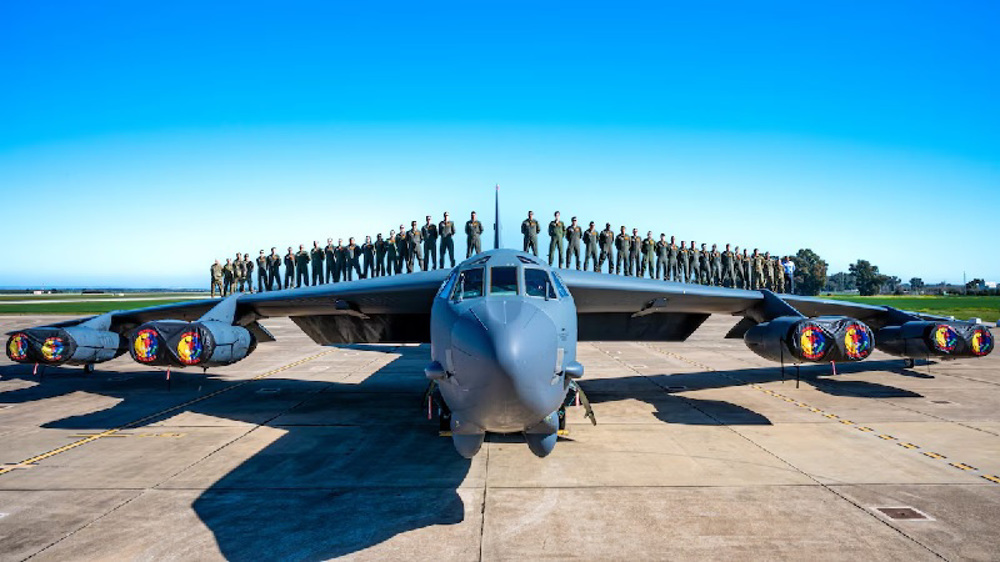
US B-52 bombers in West Asia do not scare Iran
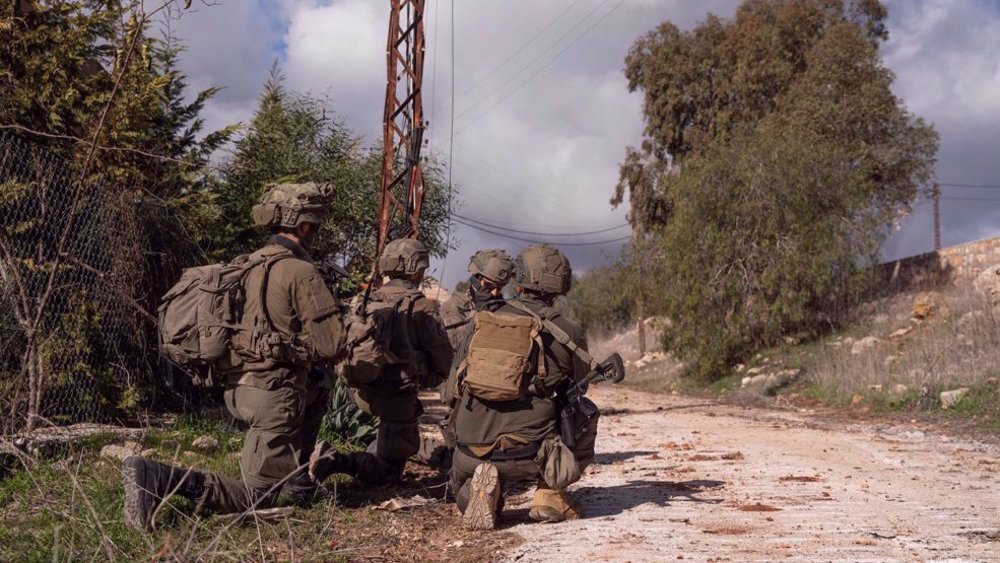
US, France want mercenaries deployed in south Lebanon: Report
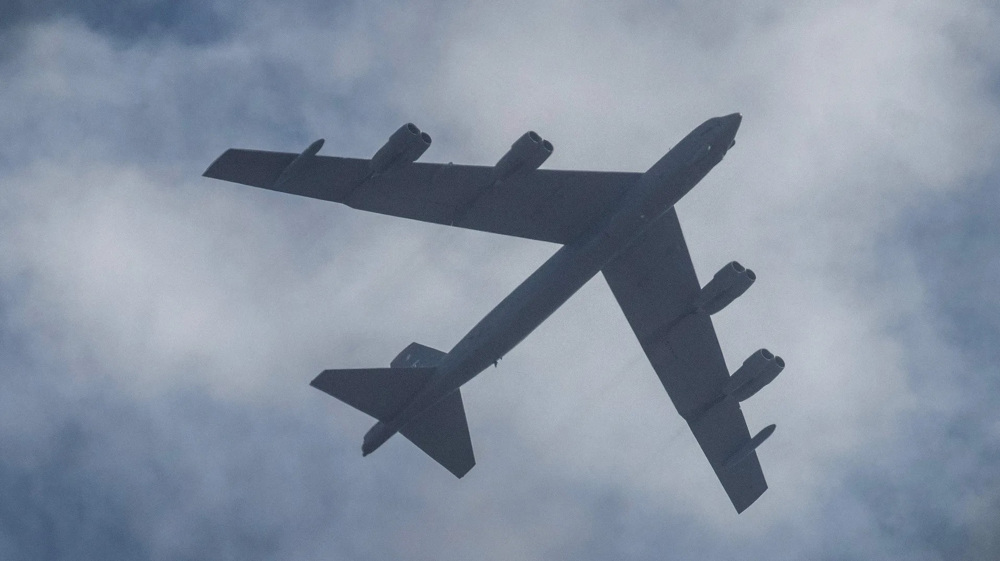
US bombers fly over Mediterranean Sea as delivery of heavy bombs to Israel announced
Israel’s massacres won’t grant it ‘legitimacy’: Hamas on 31st anniversary of Ibrahimi Mosque tragedy
French leader decries ‘unprecedented diplomatic scandal’ after Israel bars European MPs
VIDEO | Washington’s failed projects
VIDEO | Islamabad exhibition exposes Israeli atrocities in Gaza
Trump rescinds arms sales regulation in favor of Israel, sources say
Iran’s president vows to accelerate cooperation with Russia
Palestinian says Israeli jailers poured acid on him during interrogation
Iran, Turkmenistan seek increased cargo transit via railways


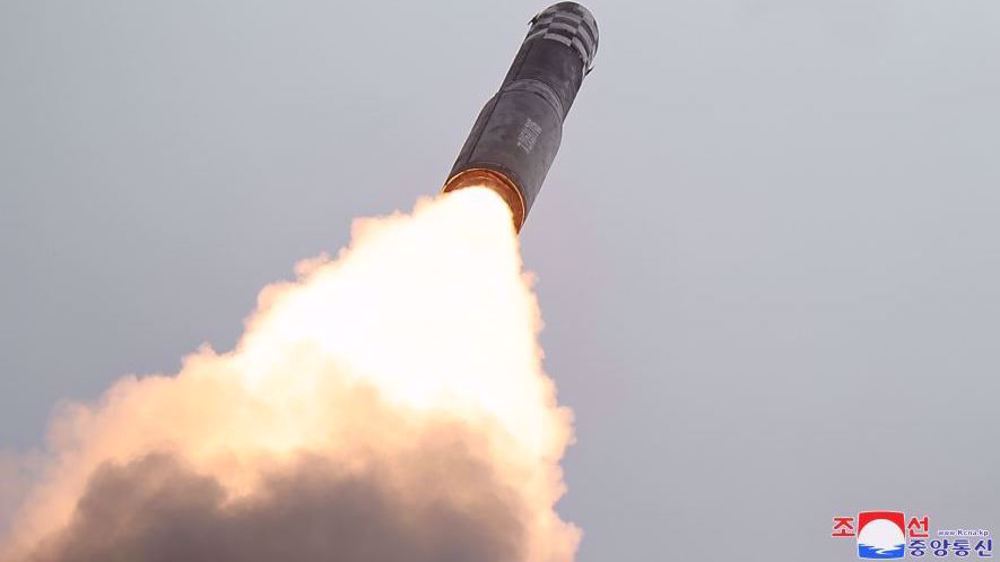

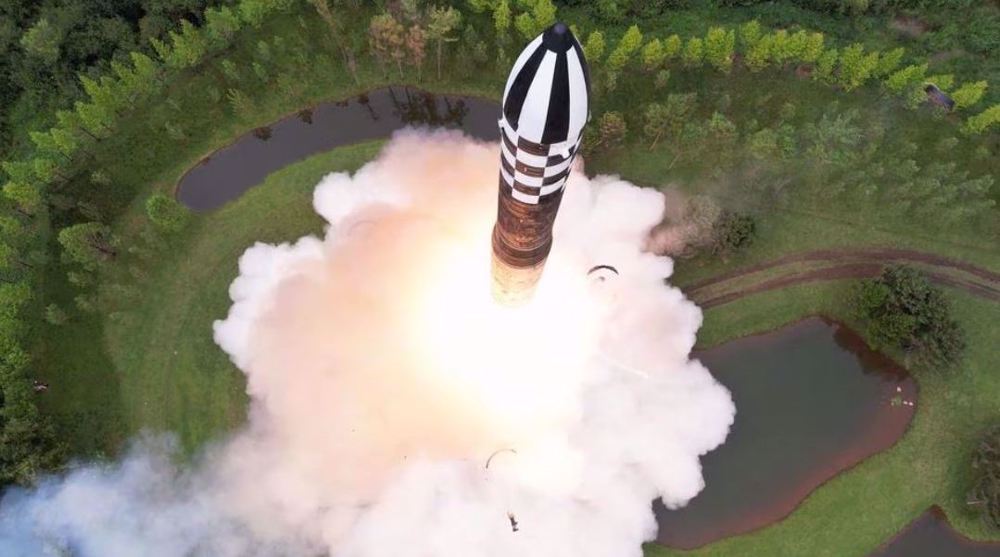




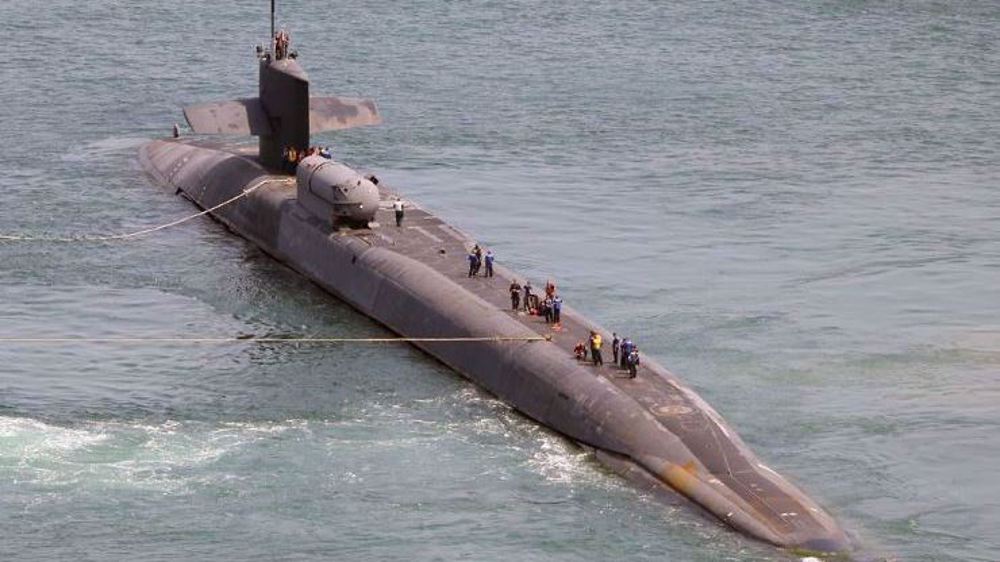

 This makes it easy to access the Press TV website
This makes it easy to access the Press TV website